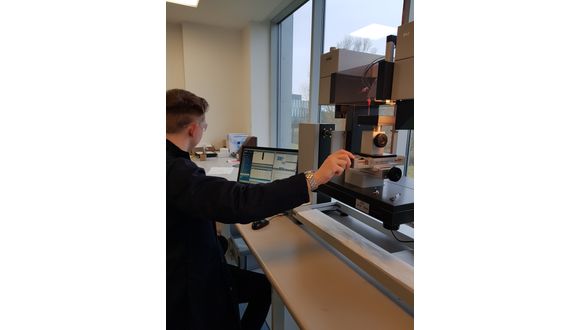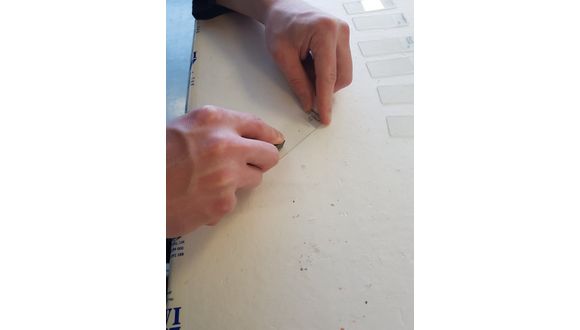Tue, 13 April, 2021
TWI has been working as part of the SEER Project to develop smart, self-monitoring composite tools that are able to measure process and material parameters to provide reliable real-time process control.
The project consortium is aiming to achieve this through the development of miniature photonic sensors, which will be embedded into tools via through thickness techniques to minimise alteration of the tool’s structural integrity. A prototype process of monitoring, optimisation and control will enhance the manufacturing control system.
The sensors, which will operate in near infrared spectrums and be integrated on a photonic integrated circuit (PIC), will include those for temperature, refractive index and pressure. The PIC sensors will address pre-processing issues and use acquired raw data for process optimisation through the use of theoretical models and machine learning algorithms. This will allow for each tool to benefit from sensor data to manage material state models, process parameters and the degradation of the tool itself. These benefits will allow efficient preventative maintenance to be carried out on the tools as well as informing better tool design. The data from the testing of cured parts will also help optimise process control, thereby ensuring an enhanced quality yield.

Designed to be compatible with (and to optimise) existing composite manufacturing methods, the SEER solution will increase efficiencies and also save resources for resin curing cycles.
TWI has begun work on this project by leading the development of a hydrophobic coating for refractive index sensors to ensure that the mould release agent used in manufacture is repelled without affecting the sensor operation.
To achieve this, candidate transparent coating systems have been selected and are being evaluated. TWI’s testing includes checking not just the repellent characteristics but also the mechanical resilience of the coatings and their ability to retain their functional performance during operation. This will ensure that a balance is found between hydrophobicity and durability to enable the coating to operate efficiently through the composite tool service life.

In addition to developing the sensor coating, TWI will be involved in the design and integration of the sensors within composite mould tools representing a range of different geometries and locations, composite part cure monitoring, and validation of part properties as the project progresses.
The SEER project has received funding from the European Union’s Horizon 2020 research and innovation programme under grant agreement No 871875.